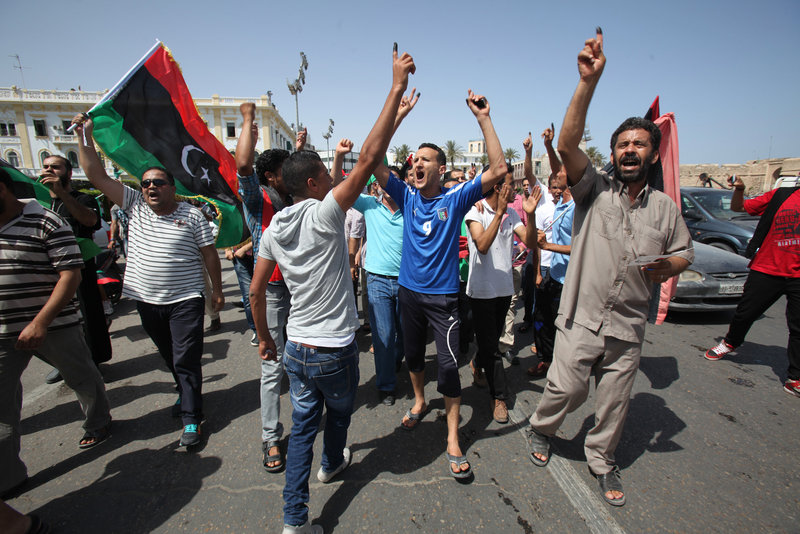TRIPOLI, Libya – Libya’s first nationwide elections in nearly five decades brought hints Sunday of an Arab Spring precedent: Western-leaning parties making strides over Islamist rivals hoping to follow the same paths to power as in neighbors Egypt and Tunisia.
While final results from Saturday’s parliamentary election could still be days away under a two-tier selection system, unofficial and partial counts from Libya’s biggest cities suggested liberal factions were leading the Muslim Brotherhood and allies in a possible first major setback to their political surge following last year’s uprisings.
If the Libyan trend holds — which is still far from certain — it would challenge the narrative of rising Islamist power since the fall of Western-allied regimes from Tunis to Cairo. It also could display the different political dynamics in Libya, where tribal loyalties run deep and groups such as the Muslim Brotherhood at times cooperated with the rule of Moammar Gadhafi.
“Anyone with past ties with old regime is hated, even despised,” said Fathi al-Fadhali, a pro-Islamist Libyan political analyst who lived in exile for 30 years.
“Any political names associated with the regime are immediately politically burnt by that association.”
Ultimately, the 200-seat parliament will face the task of forming a government — which could become tests of strength for Islamists and secular forces over questions such as women’s rights, the extent of traditional Islamic law and relations with the U.S. and other Western nations that helped bring down Gadhafi.
President Obama congratulated Libyans on the vote, calling it “another milestone on their extraordinary transition to democracy.”
U.N. Secretary-General Ban Ki-moon praised the people of Libya and the candidates who “contested the election in a peaceful, democratic spirit,” according to his spokesman.
Now, the ballots have to be portioned out according to two categories: Eighty seats are set aside for party lists, and the remaining 120 for individual independent candidates.
In the first group, a liberal alliance led the former rebel prime minister Mahmoud Jibril appeared to hold more than half the seats in the capital Tripoli and the revolution stronghold of Benghazi, according to several party representatives. They spoke on condition of anonymity because they were not authorized to brief media.
In western Libya, where Jibril’s tribe, the Warfalla, is prominent, his party also was on the top in the early counting, the political officials said. In Libya’s third-largest city, Misrata — which was besieged by Gadhafi forces for weeks — an upstart faction of local politicians appeared to hold the lead in another possible blow to Islamists.
Faisal Krekshi, secretary general of Jibril’s Alliance of National Forces, said the results were based on reports by party representatives at ballot counting centers across the vast desert nation of 6 million people.
Even officials from rival Islamist parties — the Muslim Brotherhood’s Justice and Construction Party and the Islamist Al-Watan — described Jibril’s alliance as the biggest winner in the race for the 80 party seats.
But even if true, that is still a long way from victory.
The bulk of the parliament — 120 seats — will be decided by the results from the head-to-head races among thousands of candidates, making it nearly impossible to predict.
Send questions/comments to the editors.



Success. Please wait for the page to reload. If the page does not reload within 5 seconds, please refresh the page.
Enter your email and password to access comments.
Hi, to comment on stories you must . This profile is in addition to your subscription and website login.
Already have a commenting profile? .
Invalid username/password.
Please check your email to confirm and complete your registration.
Only subscribers are eligible to post comments. Please subscribe or login first for digital access. Here’s why.
Use the form below to reset your password. When you've submitted your account email, we will send an email with a reset code.